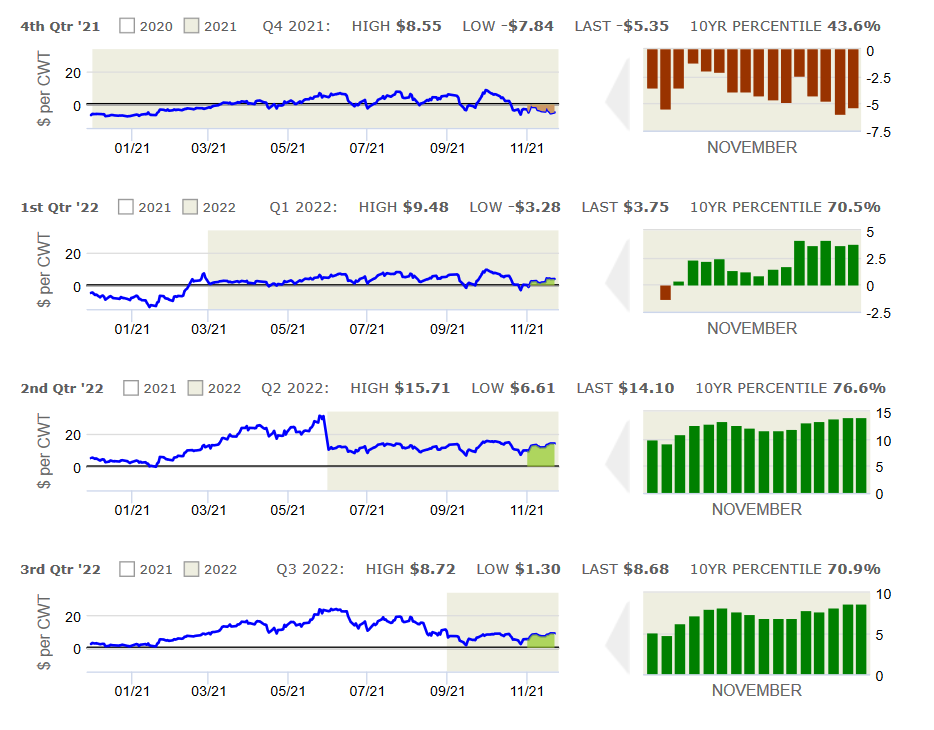

Forward margins strengthened since the end of October on higher Lean Hog futures while trends in projected feed costs were mixed with relatively flat corn prices as soybean meal recently spiked. Labor constraints are beginning to exert more impact on the cash market as the holiday season approaches. Weekly hog slaughter has been trending lower, running around 2.53 million head weekly over the last 6 weeks compared to 2.61 million during the same period last year or down 3.1%. The USDA September Hogs and Pigs report indicated a 1.4% decline in the 120-179 weight category and a 1.3% decrease in the over 180-pound weight group relative to year-ago levels. The lower-than- expected weekly slaughter rates are most likely due to labor shortages at slaughtering plants and contributing to lower cash hog prices as slaughter weights increase. Dressed weights have increased 5 pounds or 2.4% since the first week of September. A slowdown in pork export sales and shipments to China has also been a contributing factor to price weakness. Total pork shipments for the week ending November 11 were 34,700 MT, up 5.7% from the prior four-week average, but down 11% from last year. Pork export shipments to China last week of 4,364 MT were 11.6% higher than the four-week average but down a considerable 67% from last year. While strong export business to Mexico has helped offset some of this impact, year-to-date pork exports are lower than last year primarily due to a slowdown in business to China. Corn prices continue to trade sideways as they stabilize in a higher post-harvest trading range while soybean meal prices have surged recently as a result of strong soybean export sales. Our clients continuing looking for opportunities to add margin protection in deferred periods with flexible strategies that allow for further margin improvement while evaluating adjustments on existing positions.


The Hog Margin calculation assumes that 73 lbs of soybean meal and 4.87 bushels of corn are required to produce 100 lean hog lbs. Additional assumed costs include $40 per cwt for other feed and non-feed expenses




